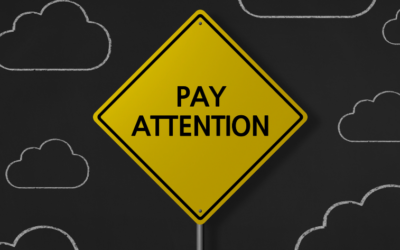Effective communication can make or break a deal in the fast-paced sales world. Successful salespeople understand the importance of clear and concise communication with their customers. However, there are common mistakes that can hinder sales communication and have negative consequences on sales success. In this article, we will explore these mistakes and provide strategies for improvement.
Understanding the Importance of Effective Sales Communication
Communication plays a crucial role in the success of any salesperson. It is the foundation upon which relationships with customers are built. Effective communication allows salespeople to understand customer needs, convey the value of their product or service, and address any concerns or objections. Sales efforts can fall flat without effective communication, and valuable opportunities can be lost.
The Role of Communication in Sales Success
In sales, communication is more than just conveying information. It is about building trust and rapport with customers. By effectively communicating, salespeople can establish themselves as trusted advisors, guiding customers through the buying process. Good communication also helps salespeople understand their customers' specific needs and pain points, enabling them to tailor their offerings accordingly.
For example, imagine a salesperson trying to sell a new software solution to a potential client. Through effective communication, the salesperson can ask probing questions to understand the client's current challenges and pain points. By listening and empathizing, the salesperson can articulate how the software solution can address those specific needs, providing tangible benefits and value to the client.
Moreover, effective communication in sales goes beyond just verbal exchanges. Non-verbal cues, such as body language and facial expressions, also play a significant role. Salespeople who are attentive to these cues can gauge customer interest, engagement, and receptiveness. They can adjust their communication style and approach accordingly, ensuring that the message is delivered most effectively.
How Poor Communication Can Impact Sales
Poor communication can have detrimental effects on sales success. Customers may become hesitant or lose interest when sales messages are unclear or confusing. Misunderstandings can lead to wasted time and effort and missed sales opportunities. Additionally, poor communication can damage customer relationships, tarnish reputations, and hinder future sales efforts.
Consider a situation where a salesperson fails to effectively communicate the features and benefits of a product to a potential customer. The customer may feel uncertain about the product's value and may explore other options. This lack of clarity and understanding can result in a lost sale and a missed opportunity for the salesperson.
Furthermore, poor communication can lead to misunderstandings and misconceptions. If a salesperson fails to adequately address customer concerns or objections, it can create doubt and mistrust. Customers may question the credibility and reliability of the salesperson and the company they represent. This can have long-term consequences, as negative word-of-mouth spreads and potential customers are deterred from engaging with the salesperson or the company.
Effective sales communication is essential for building relationships, understanding customer needs, and conveying value. It allows salespeople to establish trust, tailor their offerings, and guide customers through buying.
On the other hand, poor communication can lead to missed opportunities, wasted efforts, and damaged relationships. To maximize sales success and drive business growth, sales professionals must prioritize practical communication skills.
Identifying Common Mistakes in Sales Communication
Recognizing and addressing the common mistakes made in sales communication is essential for enhancing sales effectiveness. Let's take a closer look at some of these mistakes:
Misinterpretation of Customer Needs
One common mistake is misinterpreting customer needs. Salespeople may assume they understand what the customer wants without taking the time to listen and clarify. This can lead to offering a solution that does not solve the customer's problem or meet their expectations. To avoid this mistake, salespeople should actively listen and ask probing questions to gain a thorough understanding of customer needs before proposing a solution.
For example, imagine a salesperson trying to sell a software solution to a small business owner. The salesperson assumes that the business owner needs a comprehensive software package to manage all aspects of their business. However, after listening carefully, the salesperson realizes that the business owner is primarily looking for simple accounting software to track expenses and generate invoices.
By clarifying the customer's needs, the salesperson can offer a tailored solution that meets their requirements.
Overcomplicating the Sales Message
Another mistake is overcomplicating the sales message. Salespeople often need to impress customers with industry jargon or technical details. However, this can overwhelm customers and make it difficult for them to grasp the product or service's value. Simplifying the message and focusing on the benefits and outcomes that matter most to the customer can significantly improve communication effectiveness.
For instance, consider a salesperson pitching a new marketing automation tool to a marketing manager. Instead of bombarding the manager with technical specifications and complex features, the salesperson could highlight how the tool can streamline their marketing campaigns, save time, and increase ROI. By presenting the information clearly and concisely, the salesperson can communicate the product's value without overwhelming the customer.
Neglecting Follow-Up Communication
Follow-up communication is crucial for maintaining relationships with customers and nurturing leads. Unfortunately, many salespeople make the mistake of neglecting follow-up. Failing to communicate promptly and consistently can give the impression of disinterest or lack of commitment. Regular follow-up demonstrates reliability and keeps the conversation going, increasing the chances of closing a sale.
For example, after an initial sales meeting, a salesperson should promptly send a follow-up email to thank the prospect for their time and recap the key points discussed. This shows appreciation and serves as a reminder of the value the salesperson can provide. Additionally, scheduling regular follow-up calls or meetings helps keep the prospect engaged and allows the salesperson to address any concerns or questions.
It's important to note that follow-up communication is not limited to the sales process alone. Even after closing a sale, maintaining regular contact with customers is essential for building long-term relationships and generating repeat business.
Sending personalized emails, sharing relevant industry insights, or offering exclusive promotions can help to keep customers engaged and loyal to the company.

The Consequences of Mistakes in Sales Communication
Recognizing the consequences of sales communication errors on short-term and long-term sales success is essential. Here are some potential outcomes:
Damaging Customer Relationships
Poor communication can strain customer relationships. It can lead to misunderstandings, frustration, and a lack of trust. Customers with negative experiences due to communication errors are less likely to do repeat business or refer others to the salesperson. Building and maintaining strong customer relationships always requires effective and respectful communication.
For example, imagine a salesperson who fails to communicate the terms and conditions of a sale to a customer. As a result, the customer may feel deceived or misled, leading to a breakdown in trust. This can damage the current relationship and deter the customer from engaging in future business with the salesperson or their company.
Furthermore, poor communication can also create misunderstandings that may escalate into conflicts. For instance, if a salesperson fails to listen to a customer's concerns actively and instead dismisses them, it can lead to frustration and dissatisfaction. This can ultimately result in losing a valuable customer and potentially negative word-of-mouth, further damaging the salesperson's reputation.
Loss of Potential Sales Opportunities
When sales messages are unclear or fail to resonate with customers, potential sales opportunities can slip away. Customers may choose competitors who can better understand their needs and deliver a persuasive message. Effective communication is the key to capturing the attention and interest of potential customers and increasing the likelihood of closing a sale.
For instance, consider a scenario where a salesperson fails to effectively communicate the unique value proposition of their product or service. As a result, potential customers may fail to see the benefits or differentiate it from competitors' offerings. This lack of clarity can lead to missed sales opportunities as customers opt for alternatives that better address their needs and desires.
In addition, ineffective communication can hinder the salesperson's ability to identify and address customer objections. Without clear communication, it becomes challenging to understand the specific concerns or hesitations that potential customers may have. Consequently, the salesperson may fail to provide the necessary information or reassurance, leading to lost sales.
Furthermore, poor communication can also hinder the salesperson's ability to adapt their sales approach to different customer preferences and buying behaviors. Each customer is unique, and effective communication allows the salesperson to tailor their message and presentation style accordingly. Potential customers may feel disconnected or uninterested without this adaptability, resulting in missed sales opportunities.
Sales communication errors can significantly affect customer relationships and potential sales opportunities. Salespeople must prioritize practical communication skills to build trust, address customer needs, and ultimately increase sales success.
Improving Sales Communication
Recognizing and addressing common communication mistakes is the first step toward improvement. Here are strategies to enhance sales communication:
Strategies for Clear and Effective Communication
Salespeople should strive for clear and effective communication. They should focus on conveying their messages concisely, avoiding unnecessary jargon, and using language that resonates with their target audience. Visual aids, such as charts or infographics, can also help simplify complex information and make it more accessible to customers.
Importance of Active Listening in Sales
Active listening is a critical skill for effective sales communication. It involves fully engaging with the customer, paying attention to their verbal and non-verbal cues, and showing genuine interest in their concerns and needs. By actively listening, salespeople can gain valuable insights and tailor their responses to address specific customer requirements.
The Role of Feedback in Sales Communication
Feedback is essential for improving sales communication. Salespeople should actively seek customer feedback to understand how well their communication is received. Feedback can highlight areas for improvement and provide valuable insights into customer preferences and needs. Sales managers and mentors can also provide constructive feedback to help salespeople refine their communication skills.
Watch this TEDx Talk by Steve Harrison on ‘How to sell without selling your soul':
Avoiding Common Mistakes in Future Sales Communication
To avoid repeating the same communication mistakes in the future, salespeople should take a proactive approach to ongoing training and development. Here are some strategies:
Regular Training and Skill Development
Salespeople should continuously hone their communication skills through training and skill development programs. By staying updated on the latest sales techniques and communication strategies, salespeople can adapt to changing customer preferences and improve their effectiveness in conveying their messages.
Emphasizing the Value of Good Communication
Organizations should emphasize the value of good communication in their sales teams. By creating a culture that recognizes and rewards effective communication, salespeople are more likely to prioritize clear and concise communication in their customer interactions. Organizations can provide incentives, such as bonuses or recognition programs, to encourage and reinforce communication excellence.
Implementing a Systematic Approach to Sales Communication
A systematic approach to sales communication can help standardize best practices and ensure consistency across the sales team. This can involve creating templates or guidelines for common communication scenarios, providing scripts for specific sales messages, and conducting regular team meetings to discuss communication strategies and share success stories.
Effective sales communication is vital for success in the competitive sales industry. By understanding and avoiding common mistakes, salespeople can enhance their communication skills, build strong customer relationships, and capitalize on valuable sales opportunities. Through ongoing training and development, sales teams can continuously improve communication effectiveness and achieve tremendous sales success.
Every business owner will make mistakes in Sales Communication; those who learn and improve upon their experience succeed in the end!
Explore the Path to Success with CorEthos
Thank you for journeying with us through this exploration of ideas. Your presence here is a testament to a shared passion for reimagining business, and it resonates with the essence of CorEthos: bringing humanity back to business.
Perhaps the curiosity that brought you here still burns brightly, yearning for further discovery. In that case, we invite you to delve into our blog, where each article opens new doors to understanding, insight, and growth. They are tailored to leaders like you, eager to unravel the complex tapestry of today's business world.
If you find yourself intrigued by the delicate science behind communication and leadership, why not embark on a journey of discovery with our newsletter? Subscribing is like opening a treasure chest filled with wisdom that connects you to the essence of collaboration and community.
Intensify Your Leadership Journey with Our Mastermind Program
Our newly launched Mastermind Program provides a focused setting for tackling challenges like honing effectiveness, inspiring your team, and mastering the art of delegation. It's a unique space where business acumen meets human-centered values, delivered with the same quality and integrity you expect from CorEthos. Ready to dive deeper into your leadership potential?
We Would Love to Get to Know Your Challenges Better!
Challenges in business? We see them not as stumbling blocks but as opportunities for transformation. Your unique path awaits, beginning with a complimentary consultation with CorEthos. We'll build bridges over obstacles and forge a trail to success, leveraging our three foundational pillars.
Your adventure with CorEthos doesn't have to end here. Let's continue to build, learn, and grow together, reflecting on what makes your business uniquely human. We are your compass, guiding you through the challenges and celebrating the triumphs. Let's begin this exciting journey today.



